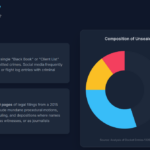
We all start a new diet full of hope. We plan our meals, clear out the junk, maybe even post about it on social media. For the first few days, we’re on fire. But slowly, something shifts. We lose momentum, fall off the wagon, and end up right back where we started, maybe even a few pounds heavier. What happened? Nine times out of ten, it wasn’t the diet that failed. It was us. Specifically, self sabotage.
Here are five sneaky ways you might be self-sabotaging your diet, even when your intentions are solid.
1. Telling Yourself “I Deserve This”
This one’s a classic. After a long day or a stressful week, it’s easy to reach for comfort food and justify it with, “I’ve earned this.” And maybe you have earned a break—but sabotaging your progress isn’t a reward. Self sabotage often wears a disguise that looks a lot like self-care. The key is to separate emotional needs from nutritional ones. If you’ve had a hard day, try asking what you really need. Is it rest? A walk? A vent session with a friend? Food is a poor therapist.
2. The “All or Nothing” Trap
Perfectionism is diet poison. You eat one cookie, and suddenly the day is “ruined,” so you might as well eat the whole sleeve. Sound familiar? This is one of the most common forms of self sabotage, and it’s entirely mindset-based. One small misstep does not undo all your effort. What actually ruins your progress is giving up because you slipped. You’d never slash your other three tires because one went flat. So why treat your diet that way?
3. Skipping Meals to “Make Up” for Slips
Guilt is a powerful thing, and it leads a lot of us into self sabotage without realizing it. After a high-calorie day, some people skip breakfast or lunch thinking it will balance things out. But your body doesn’t work that way. Skipping meals slows your metabolism, messes with your blood sugar, and usually leads to even worse choices later. You’re not punishing your stomach for your mistakes. You’re just setting yourself up for a binge. Consistency wins over restriction every time.
4. Relying on Willpower Alone
Willpower is a finite resource. If your whole strategy hinges on resisting temptation without a plan, you’re going to lose. That’s self sabotage at its finest—counting on brute force instead of structure. If you know you reach for snacks late at night, prep healthier options ahead of time. If you eat out a lot, learn the menu before you go. Set yourself up to succeed by removing friction. Planning is not weakness. It’s protection from your future self.
5. Keeping It All in Your Head
If your diet lives only in your mind—your plan, your goals, your progress—then it’s way too easy to fudge the numbers or “forget” those extra bites. This kind of casual dishonesty is a quiet form of self sabotage. Write things down. Track your food. Take progress photos. Talk to someone about how it’s going. Accountability isn’t just for other people—it’s for you, to keep you honest and aware. Your brain is great at making excuses. Data doesn’t lie.
Helpful Tools to Beat Self Sabotage
If you’re serious about staying on track and avoiding self sabotage, it helps to use the right tools. These apps make it easier to log meals, set goals, and see your patterns clearly:
- MyNetDiary is an excellent app for anyone trying to stay on top of their nutrition without the stress. It’s user-friendly, packed with features, and ideal for both beginners and experienced trackers. Unlike some clunkier apps, MyNetDiary has a sleek interface and offers smart insights based on your logged food, exercise, and health data. You can scan barcodes, track macros, and even ai scan your mean for fairly accurately log in your calories, helping not not self sabotage.
- Lose It! Ideal for those seeking a straightforward approach, Lose It! offers personalized calorie budgets and a barcode scanner for quick food logging. Its “Snap It” feature lets you log meals by taking photos, making tracking more intuitive.
- Cronometer For detailed nutrient tracking, Cronometer stands out by providing comprehensive data on vitamins, minerals, and other micronutrients. It’s especially beneficial for those with specific dietary goals or nutritional deficiencies.
Using these tools won’t magically erase bad habits, but they will help you spot self sabotage as it’s happening—and that’s half the battle.
Final Thoughts: Self Sabotage Is Sneaky
Most of us don’t mean to get in our own way. Self sabotage isn’t about laziness or lack of discipline. It’s about old habits, emotional triggers, and unconscious patterns that steer us off course. The good news is that awareness is everything. Once you can name your self sabotage, you can start to replace it with better choices.
And remember: you’re not failing. You’re learning. Every slip is information. Every restart is resilience. If you’re stuck in a cycle, take a step back and ask yourself not what you’re doing wrong, but why. Then take that answer and do one small thing differently. That’s where real change begins.


















